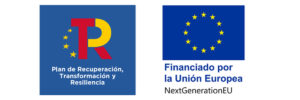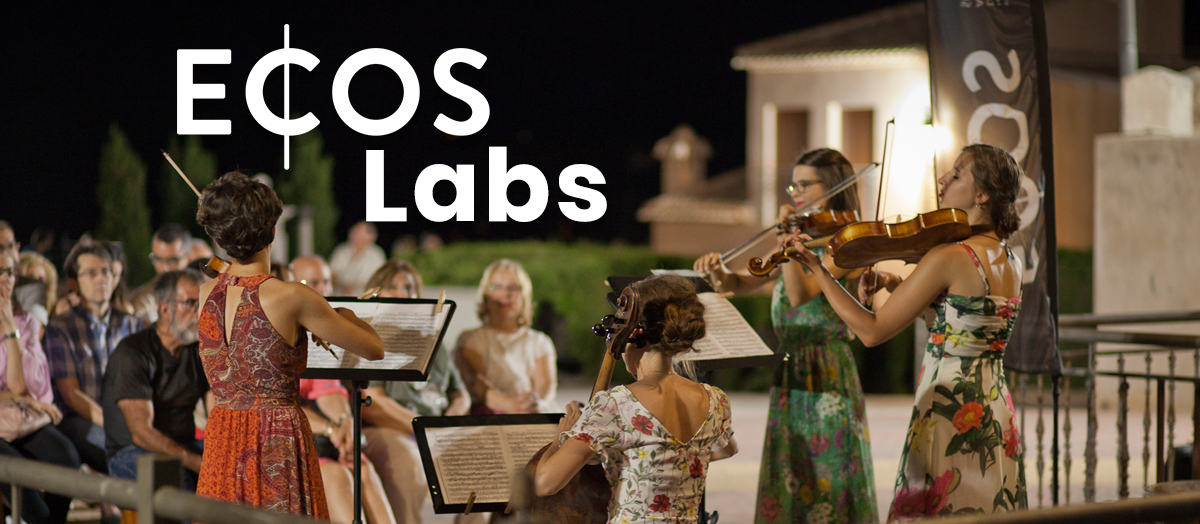
ECOS LABS AND RESIDENCIES 2022

ECOS LABS AND RESIDENCIES 2022
Every summer, ECOS Festival de Sierra Espuña welcomes the most promising young ensembles for its capacity building and residency programs. ECOS is an early music festival helded every summer in the rural areas of Sierra Espuña, Murcia, at Southern Spain.
ECOS’s strong support for emerging ensembles and young talent means that the festival is conceived as a formative and integral experience for the participants. In this way, ECOS can achieve a symbiotic relationship between the rural reality of the six municipalities that make up the Sierra Espuña Tourist Community and the reality experienced by young groups that need platforms and spaces to help them develop their talent.
With this in mind, ECOS Festival designs activities that the participants carry out during their training according to the needs and challenges that an emerging ensemble faces in the reality of the contemporary labour market and which go beyond strictly musical issues.
This proposal comprises two fundamental parts, the first one is the residency programme: a week experience to expand the ensembles prospects, integrating them into the international professional market through:
CONFERENCES
The second essential part of this proposal is a series of international conferences around the idea of ‘Early Music and social responsibility’, offered by relevant personalities within the international Early Music sector, with the aim of inspiring young ensembles to build relevant artistic proposals for society around sustainability, diversity and “global vs local” proposals.
OBJECTIVES
In short, we can mark 10 objectives we go after with all of these activities inside the frame of ECOS Labs:
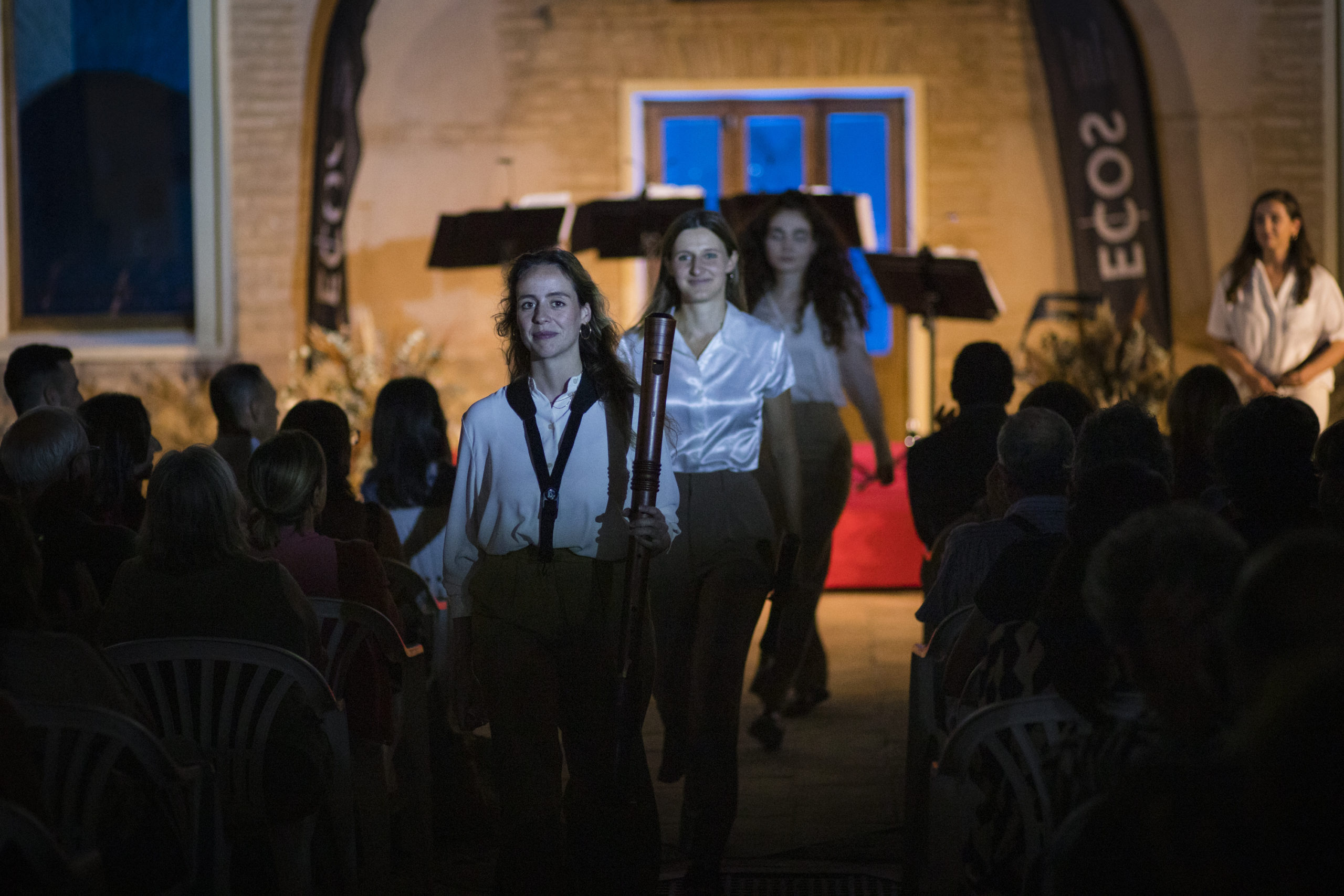
INTERNATIONAL CONFERENCES
ECOS LABS conferences are conceived as spaces for listening, debating and exchanging ideas and projects; a laboratory in which to share ideas proposed by each participant, which can be carried out in their field of action and which are directed at the achievement of certain objectives related to the theme of each session. The theme of this year’s LABS is “Early Music and Social Responsibility”. In order to deal with such a broad notion, three sessions have been planned. The activity is carried out in hybrid format, thus contributing to the participation of people who cannot be in person in the spaces selected to develop the session.
The main idea under ECOS Labs Conferences is fulfilling an enriching experience for all participants and that the exchange of ideas that may arise from the different points of view provided by the heterogeneity of the selected participants will be profitable and useful.
These conferences are also an opportunity for emerging groups to receive personalized feedback on their artistic/social project and to learn how to interact in the international Early Music market. ECOS Festival considers it essential to be able to offer emerging artists direct contact with key figures within the Early Music circuit, not only to reflect on the current state of the industry, but also to be able to generate proposals that adapt to current concerns and interests, reflecting on issues beyond the merely musical.
The ECOS LABS conferences were moderated by Jorge Losana, director of the ECOS Festival, and actively involved promoters from prestigious national and international festivals and institutions, as well as emerging groups participating in the ECOS 2022 residency programme.
In 2022, three different topics were discussed during the sessions. They were as follows:
The demographic challenge and emerging ensembles
ECOS Festival takes place in the rural area of the Region de Murcia in southern Spain, where we strive to promote dissemination to relate Early Music to this area’s local heritage and its protection, its tourism, gastronomy and nature. We constantly try to find ways to deal with the demographic challenge, bringing music to areas at risk of being excluded from cultural offers related to our field. We think it’s absolutely necessary to discuss what we can do, from all levels of participation in the Early Music field, to take on this challenge.
Bart Demuyt | AMUZ & Alamire Foundation
Maider Múgica | Centro Nacional de Difusión Musical – CNDM
Pierre Bornachot | Centre Culturel de Rencontre d’Ambronay & EEEmerging+
Sustainability and Early Music
Sustainability is one of the defining themes of the 21st century, vital to the survival of humanity. It is increasingly clear that sustainability is not just about survival – it is also very much about being able to live a good life. Cultural heritage, cultural and creative industries, sustainable cultural tourism, and cultural infrastructure can serve as strategic tools for revenue generation, landscape regeneration and protection, amongst others. To this end, we want to reflect on the role Early Music can play in incorporating sustainability throughout all levels.
Albert Edelman | Concertgebouw Brugge
Peter Pontvik | Stockholm Early Music Festival
Tamar Brüggemann | Wonderfeel
Diversity in Early Music
At ECOS Festival, our commitment to diversity and equality is a long-standing one. We believe musical organizations, festivals, and performers should strive to ensure that their work draws on and reflects the full range of backgrounds and perspectives to be found in our society, as well as ensure that the leadership and workforce reflect the diversity of contemporary times. For this, we want to reflect, alongside our speakers and ensembles, on what we can all do from our different roles within the Early Music sector.
Delma Tomlin | Nationa l Center for Early Music of York
Johannes Rantanen | Sastamala Gregoriana
Veerle Declerck | BOZAR Brussels
Sessions are available on youtube from mid-October on the ECOS Festival channel.
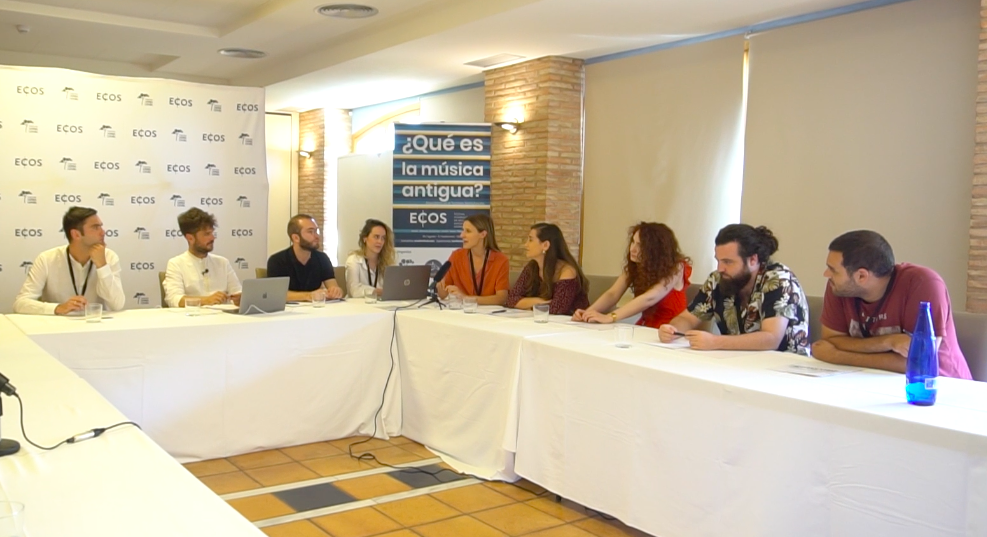
WORKSHOPS
During the weeks that the residencies take place, three workshops are held for the members of the ECOS Labs programme.
Finding new audiences is one of the great challenges of early music in the 21st century. The family concerts are a way of raising awareness of the early music repertoire while the youngest inhabitants of the Sierra Espuña Tourist Community have fun and learn about instruments, practices and languages to which they would not otherwise have such direct access.
With this workshop offered by David Gutiérrez, leader of Anacronía Ensemble PhD student in music pedagogy at the Universitat Autonoma de Barcelona, the aim is, in his own words, “bringing music in general and early music in particular to these new audiences. It is about being attractive to new audiences and stepping out of the current framework of classical music concerts. This is achieved through stories, activities or games for children and I consider that it is very important to make the participants in the ECOS Labs know that the audience that will listen to these concerts must grow both in quantity and in their ability to understand this language”.
This workshop, given by Jorge Losana, director of Cantoría and ECOS Festival, proposes a reflection on how to appeal directly to the emotions of the audience through the image shown not only in concerts but also in social networks and the media.
Communication with an audience accustomed to visuals is a crucial element in concert programming and the workshop aimed to give ideas for connecting directly with the audience, thinking about the concert through their perspective and not that of the musician.
COMMUNICATION AND CAREER DEVELOPMENT TOOLS
Addressing communication through social and contact networks is one of the major difficulties for emerging groups, which usually lack the means and platforms that can make them visible.
It is important to give a realistic view on how to shape this work from a professional perspective, taking into account copyright, how to publish on social networks, what information is relevant in order to contact programmers…
In addition, the help from the festival has come throughout the next items:
One of the most important parts of ECOS Festival is focused on developing careers and offering guidance and experience to emerging ensembles that are making their way and finding their place within the Early Music field. This workshop offered by Jorge Losana is kind of a way to assist and help all the groups to pave their way in our field, and possibly discover new unexplored ideas to help them grow.
For the workshop, the selected emerging groups must prepare a response for these questions related to objectives (individually and grouply), how and where to orientate growing, communication strategies, experiences aside from concerts…
The intention of this workshop is to make the groups reflect on what their strong points are, how to use them and how to think about the concert from the perspective of the audience and the programmer who will or will not include them in the programme of an auditorium, a festival…
PUBLIC CONCERTS
The concerts are the culmination of the week of participation in the ECOS Labs experience. They involve putting into practice everything learned during the workshops and the musical improvement carried out throughout the week.
A total of twelve concerts are programmed every year in natural and heritage environments to which the population of Sierra Espuña has access, with the intention that the population and the infrastructures already present in the area actively participate in the concerts. This past edition, of these twelve concerts (six general concerts and six family concerts), a total of eight have been given by the ensembles participating in this edition of ECOS Labs and have been a success at the box office while at the same time reaching very high levels of artistic excellence.
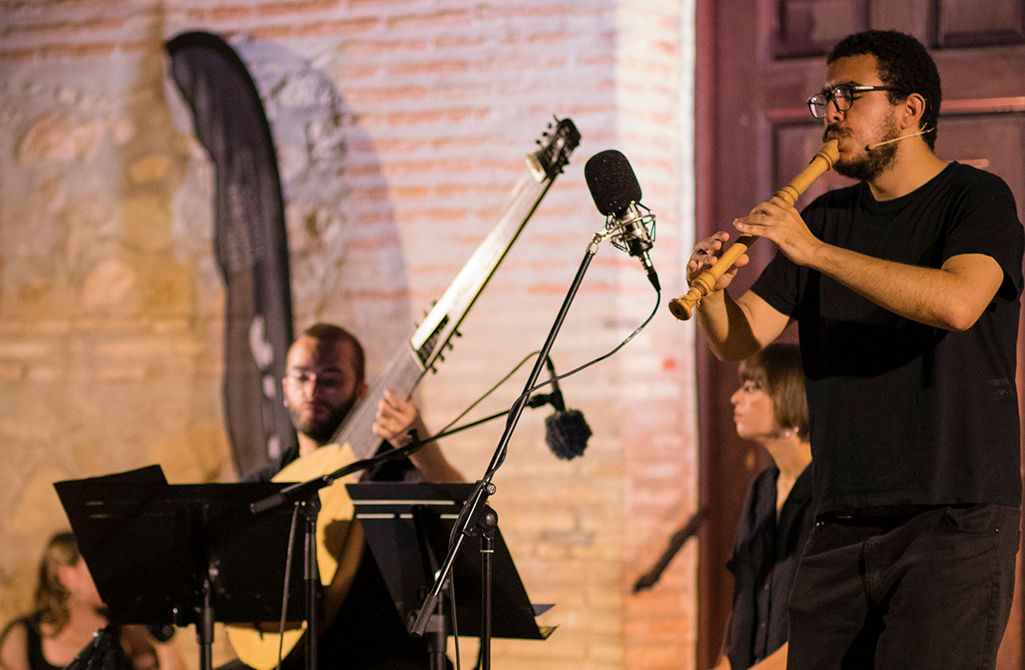
SHARING EXPERIENCES
Sharing is actually one of the main causes that lead us to make music. The experience of the ECOS Labs residencies has also involved sharing with other musicians from other countries who conceive music and reality in a different way (there were musicians from 7 different nationalities in this edition) but also with the rural environment of southern Spain, with which a relationship of synergy is established in which all participants learn and benefit.
Finally, the ECOS labs experience is a way to fight the demographic challenge which is especially complicated in rural areas of Spain and involves learning in an European environment where reviving, enhancing and re-learning the value of cultural heritage is of crucial importance.
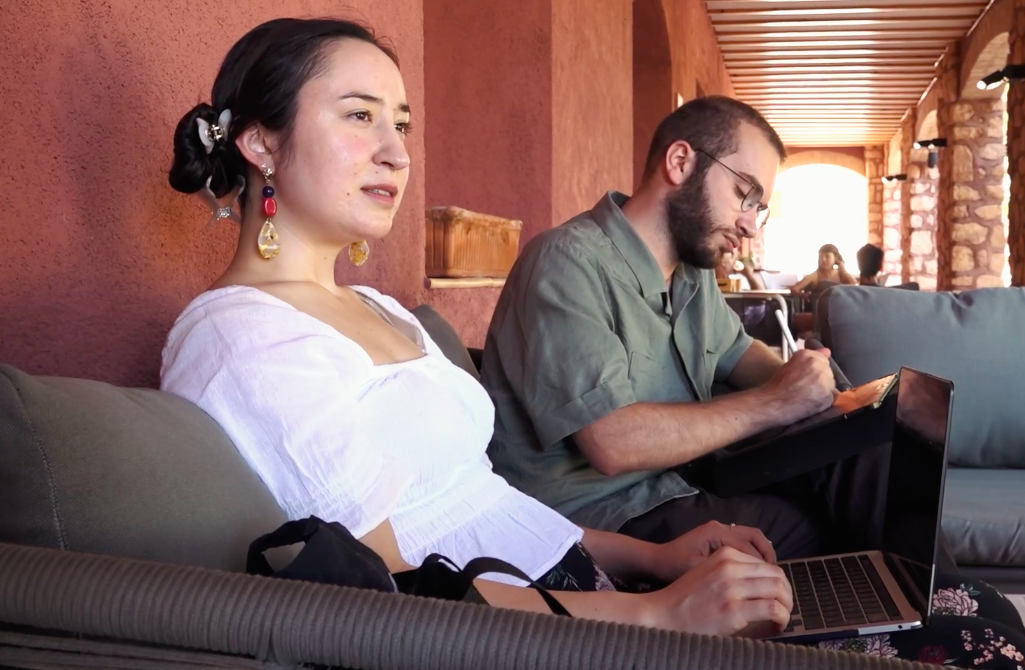
ENSEMBLES ECOS LABS 2022
Ibera Auri
Laia Blasco López | soprano and recorder
Gabriel Belkheiri García del Pozo | tenor and recorder
Jeremy Nastas | theorbo and baroque guitar
Ana Nicolás | historical percussion
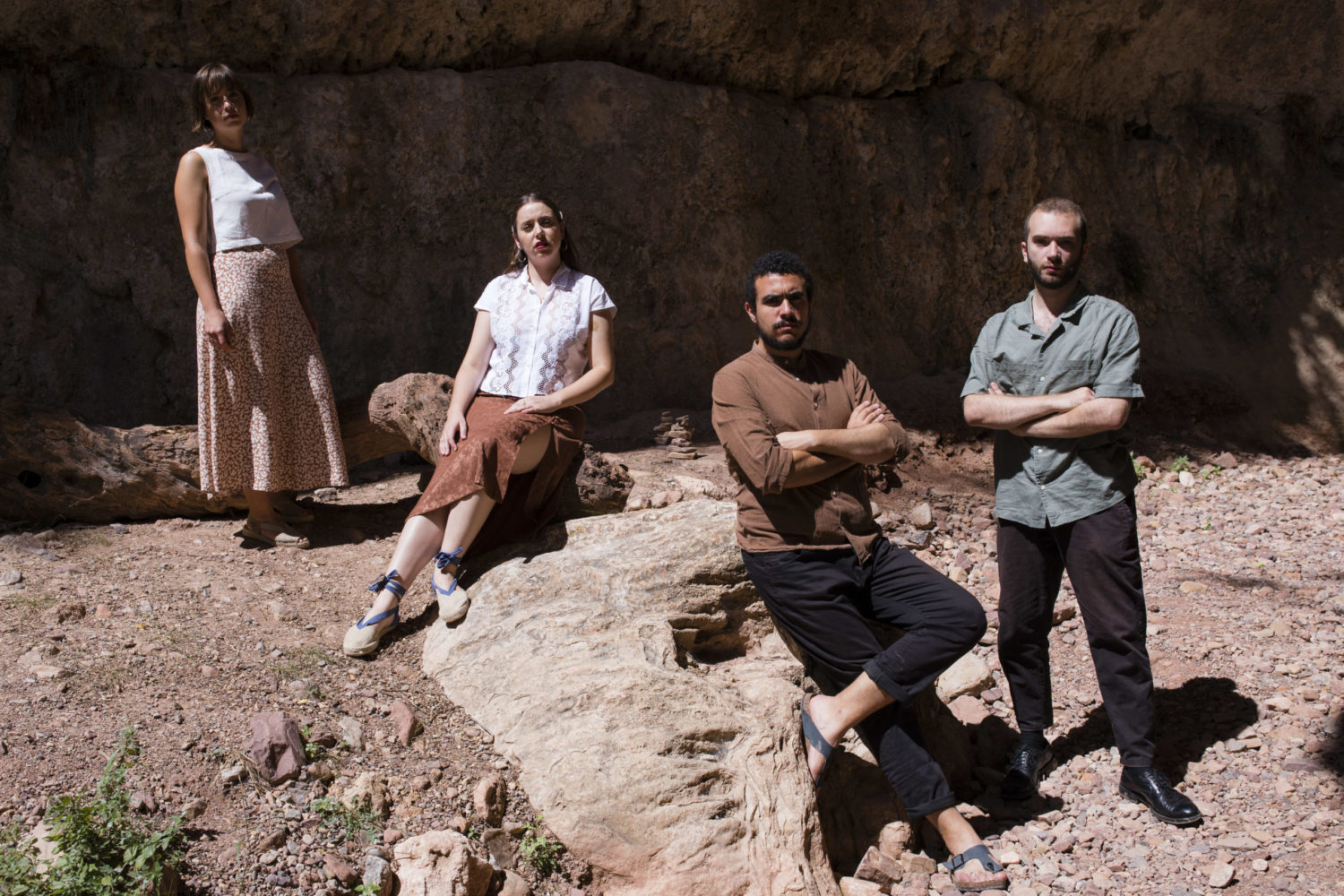
Instagram: @iberaauri | Facebook: Ibera Auri | Video
Delle Donne Consort
Serena Agosto | recorder
Lieve De Sadeleer | recorder
Kinga Ludvai | recorder
Frederike Van Lindt | recorder
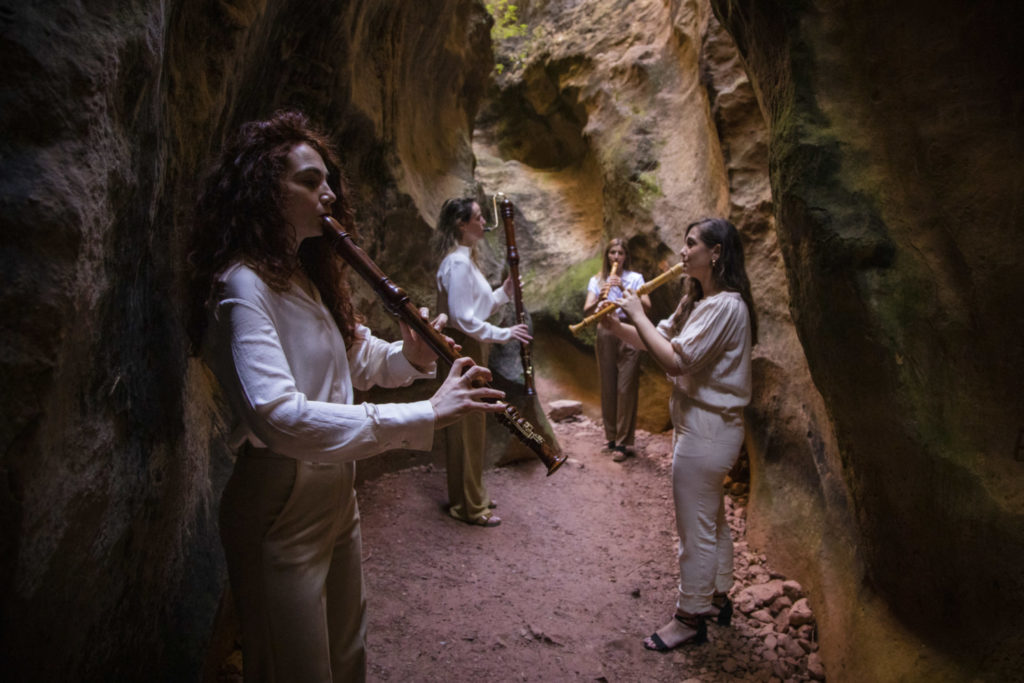
Instagram: @delle.donne.consort | Facebook: Delle donne Consort | Video
Liturina
Iain Hall | recorder
Gabriella Jones | baroque violin
Samuel Ng | baroque cello, viola da gamba
Dominika Maszczynska | harpsichord
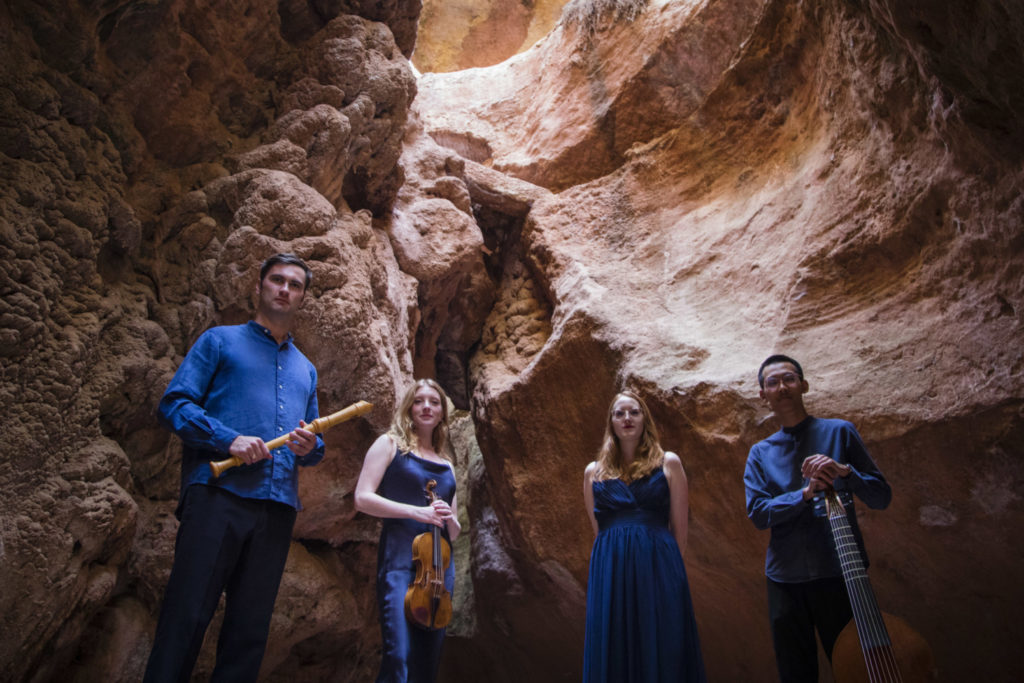
Instagram: @liturinamusic | Facebook: Liturina Ensemble | Video
Trio Aido
Talitha-Cumi Witmer | baroque guitar
Simon Vander Plaetse | theorbo
Kaho Inoue | soprano
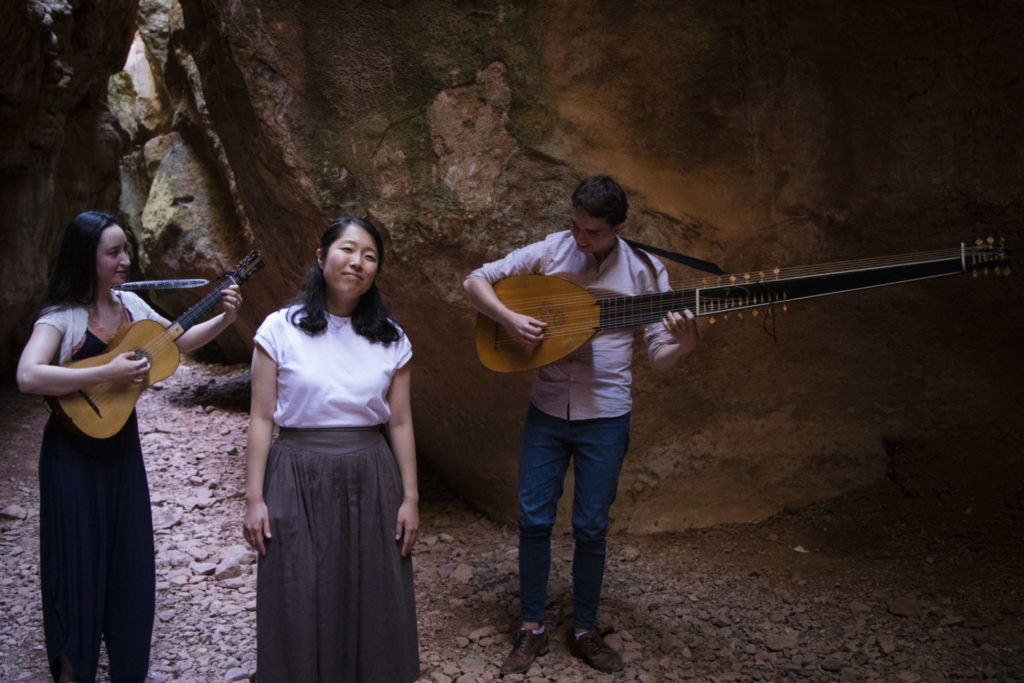
Instagram: @trio.aido | Facebook: Trio Aido | Video
Theresia Orchestra
Linda Alijaj | Oboe
María Jesús Moreno Ciudad | Oboe
Angel Alvarez | Bassoon
Vicente Beltrán | Bassoon
Jonathan van der Beek | Horn
Etienne Devigne | Horn
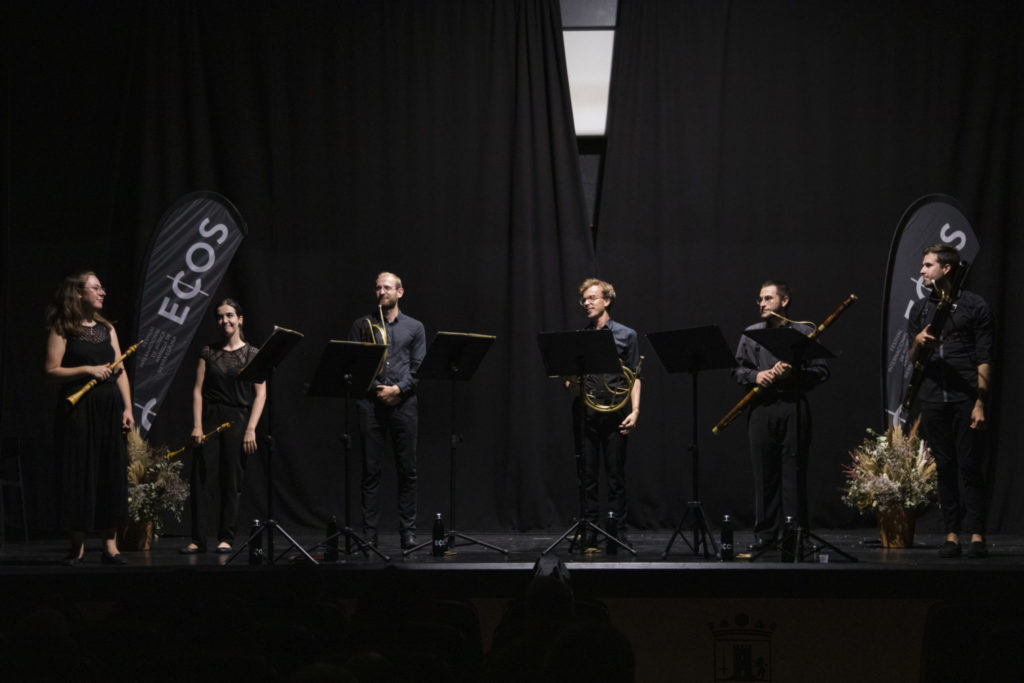
Instagram: @theresia_orchestra | Facebook: Theresia Orchestra | Video
Anacronía
David Gutiérrez | Traverso
Pablo Albarracín | Baroque violin
Luis Manuel Vicente | Baroque viola
Marina López | Clave
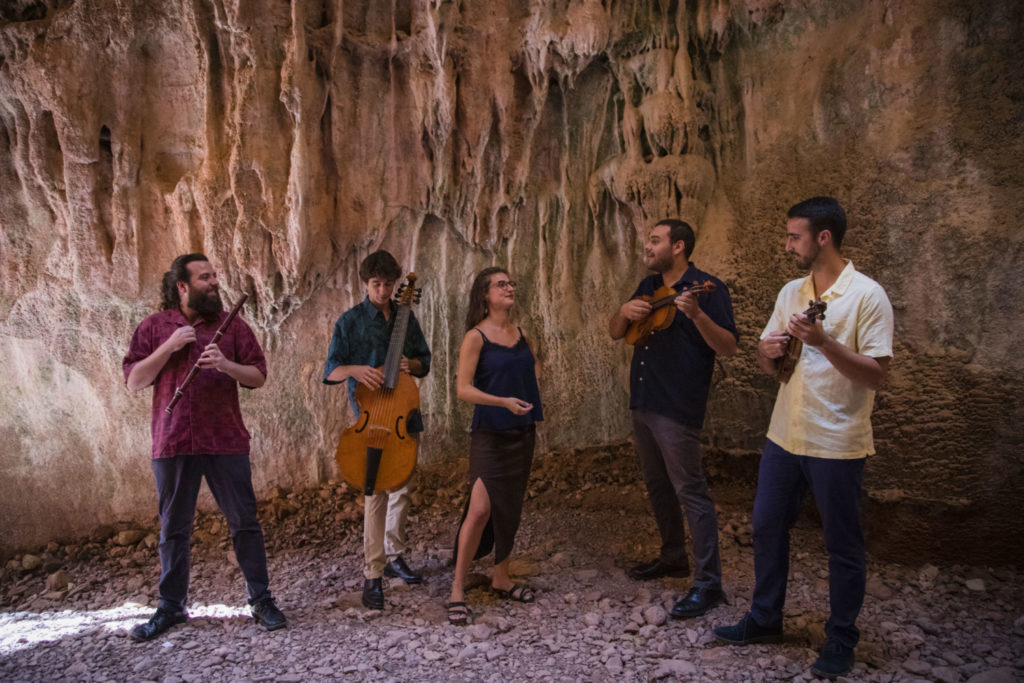
Instagram: @anacroniaens | Facebook: Anacronía | Video
Cantoría
Inés Alonso | Soprano
Oriol Gimerà | Countertenor
Jorge Losana | Tenor and director
Valentín Miralles | Bass
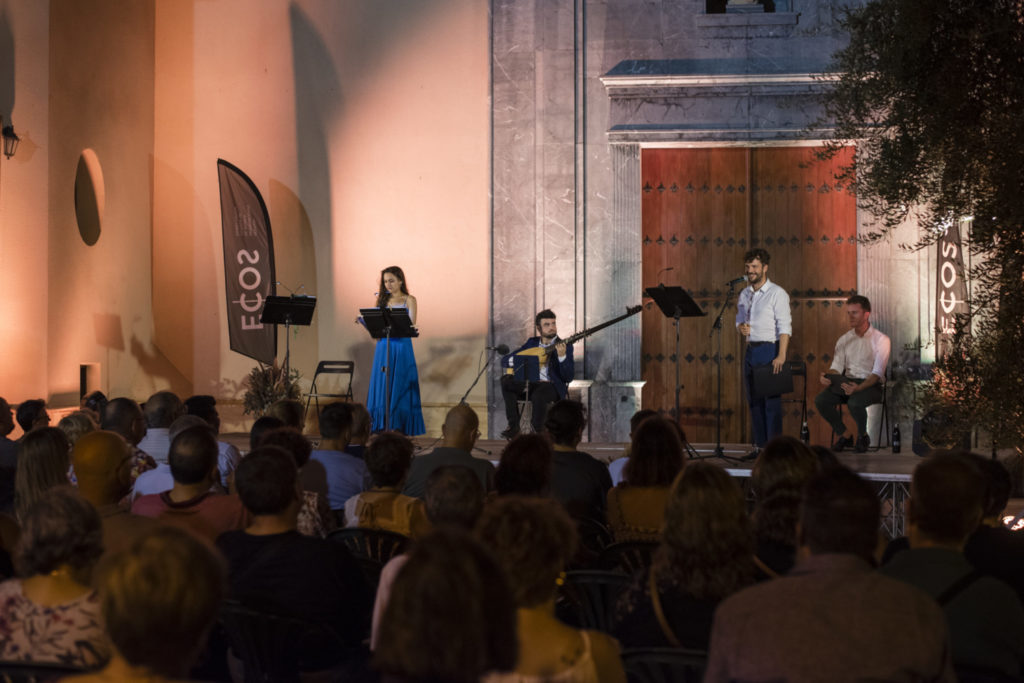
Instagram: @cantoriamusic | Facebook: Cantoría | Video
Project funded by INAEM (National Institute of Performing Arts and Music), Ministry of Culture and Sport, and the European Union-Next Generation EU.
